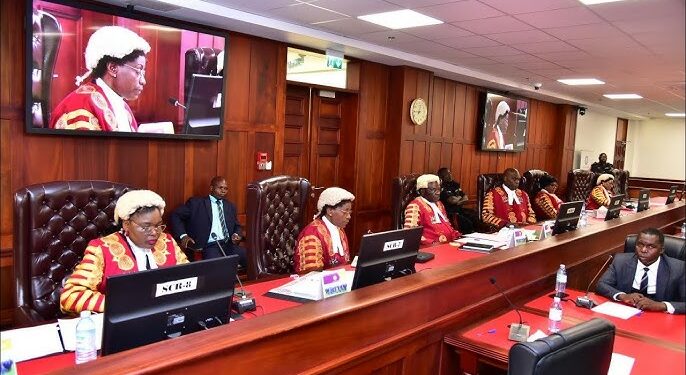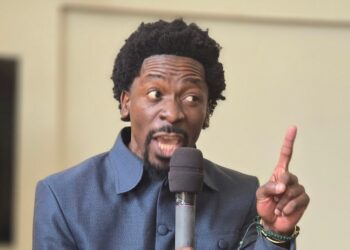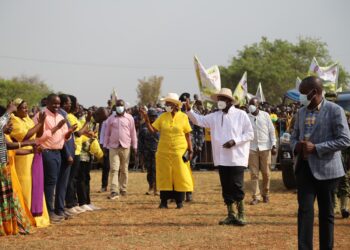For years longer, justice wandered in the wilderness, shackled by the weight of uncertainty. Civilians dragged before military courts, stood trial in foreign halls where the gavel echoed with the heavy hand of command, not the voice of the law.
For eight agonizing years, the cries for justice echoed in the hollow chambers of legal limbo, a desperate wail for fairness that was swallowed by a system not meant to hear it. Families stood helpless, their eyes hollow with sorrow, watching as loved ones were devoured by the very machine built to protect them a system that was never meant for them.
Their plea for humanity was lost in the cold silence of military tribunals, where their fates were sealed by unqualified hands. But on Friday, at long last, the storm lifted. The Supreme Court, like a long-forgotten sun breaking through the relentless clouds, tore through the darkness and shattered the chains of military overreach. The verdict, though delayed and laden with the weight of years, returned a forgotten promise: the sanctity of civilian justice, now restored.
The Supreme Court silenced the final whispers of doubt, ending the debate that has haunted this motherland for too long should civilians be tried in military courts? The answer is now clear, and it resonates like a thunderclap: No. The military, in its unyielding power, is not fit to judge the lives of those who walk among the people.
Chief Justice Alfonse Owinyi-Dollo, in his solemn voice, spoke a truth so painful it cut through the core of the nation. The court-martial, he said, is like a surgeon without a scalpel, sent to perform surgery without the hands to do so.
How could men with no legal training, and no understanding of justice, be trusted with the lives of civilians? These men, without the qualifications to even understand the law, had been entrusted with the fate of those accused of treason. Their verdicts, rendered without hope of appeal, hung like a dark cloud over the people.
The Chief Justice’s words, though sharp, carried a bitter humour if even he, educated and experienced, could not be entrusted with an operation or the command of a brigade, then how could civilians, who had never known war, be placed in the hands of military judges who had never known law? The justice system, he mourned, had twisted itself into something unrecognizable, a broken thing incapable of offering the defence, the fairness, and the dignity every citizen deserves.
Justices Monica Mugenyi, Catherine Bamugemereire, Elizabeth Musoke, and Percy Night Tuhaise all stood in quiet agreement: the military courts, tainted by corruption and incompetence, were never meant to bear the weight of truth. Their lack of independence, their hasty appointments, their insecurity all these faults had slowly eroded the very notion of justice. And so the heart of the nation bled a little more, as the judicial system, once noble, became a tool for the powerful.
The journey to this moment began in 2016 when MP Michael Kabaziguruka was arrested, charged, and placed before the court-martial. His cries, like many before him, fell into the abyss of a system designed to destroy, not protect.
He fought back, challenging the very heart of the military tribunal, arguing that no civilian should ever be tried by those who know nothing of their world. His battle, long and weary, echoed through the Constitutional Court in 2021, where justices Kenneth Kakuru (RIP), Remmy Kasule (retired), and Hellen Obura found that the military courts had not only overstepped their bounds but had stolen the very power of the judiciary.
And so it was, this judgment, handed down with all the weight of history, became the foundation of the Supreme Court’s ruling. The military courts, it was said, are not equipped to judge civilians. They have no place in this world.
Now, the voices of the people ring out, louder than ever before. Ssegona who was the lead counsel in this case, with the weight of the past on his shoulders, spoke of the court martial as a tool of fear, wielded by Gen Museveni who sought to silence those who dared to speak. The Supreme Court, he said, had brought light to the darkness, breaking the chains of oppression that had held so many captive.
For Leader of Opposition Joel Ssenyonyi, the ruling is a triumph for justice, for the people who have been unjustly tried, and for the voices that were drowned in the roar of the military tribunal. Minister of Justice Norbert Mao, with quiet reverence, spoke of the independence of the judiciary, of the weight of this decision. The nation, he said, must now unite in its respect for the verdict handed down.
Former Opposition Leader Mathias Mpuuga, his voice heavy with the history of the struggle, called for consistency in the judiciary, for a future where the people’s rights are upheld, where the overreach of the state is checked, and where the military does not claim the power to break the people’s will.
“The road ahead is long. The battle is not over. But this moment this fragile victory is a light in the darkness, a promise that the people will rise again. It’s not yet Uhuru. But today, we stand taller. Today, we are heard,” he said.
Do you have a story in your community or an opinion to share with us: Email us at editorial@watchdoguganda.com













